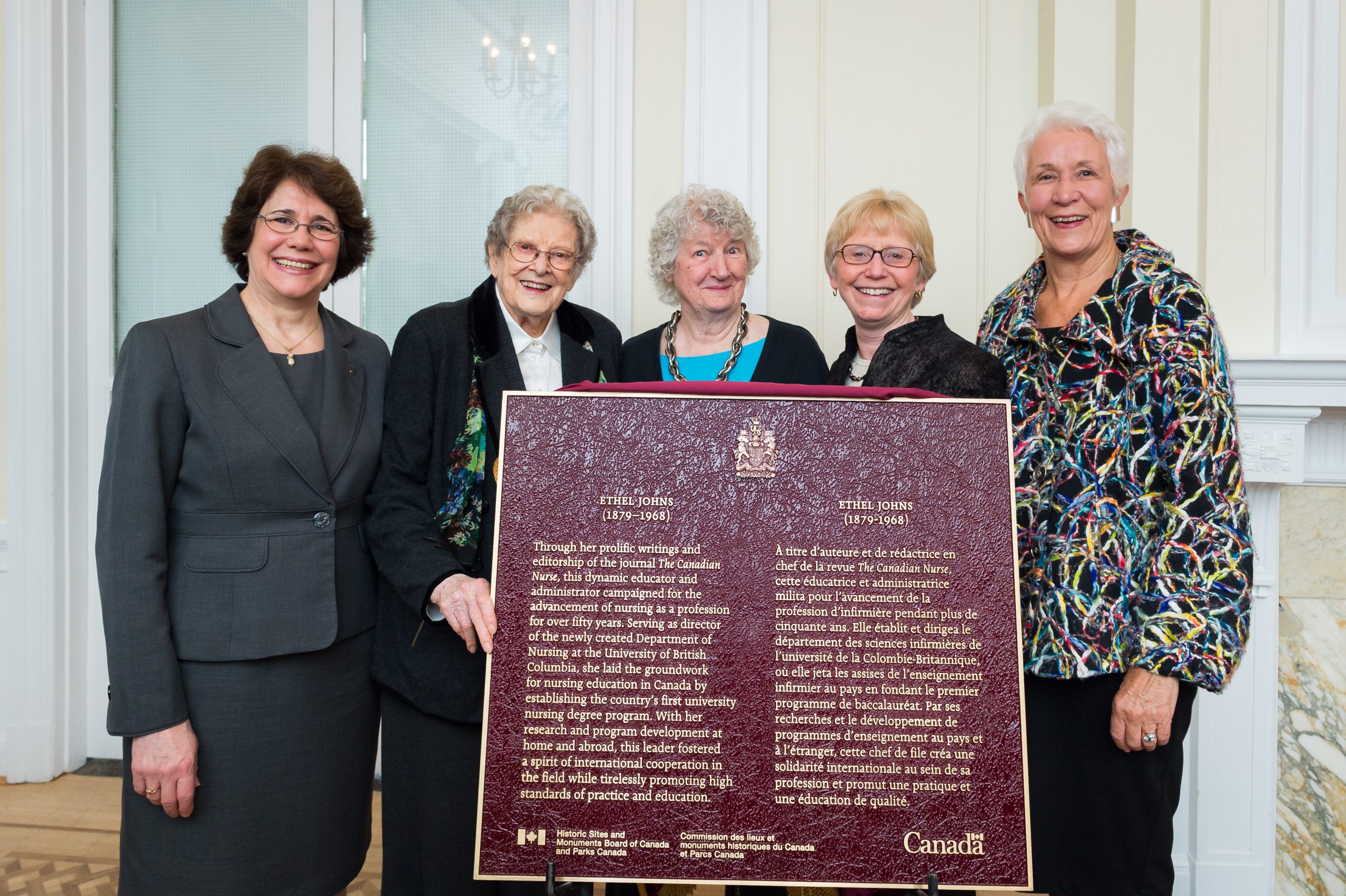Ethel Johns
Plaque Celebrates Contributions to Nursing
On February 10, 2015, more than 40 guests gathered at Cecil Green Park House to honour the naming of Ethel Johns (1879-1968), the first Director of the UBC School of Nursing, as a Person of National Historic Significance by the Government of Canada. The focal point of the ceremony was a large, bronze plaque, which details the historic significance of Johns’ contributions to the development of professional nursing in British Columbia, nationally and internationally.
“Ethel Johns was an extraordinary woman, a nursing leader who fought for the professionalism of nursing over her 50-year career as a nurse, nurse administrator, educator, consultant, editor and writer,” said Kathy Murphy, BC History of Nursing Society (BCHNS) President, in her remarks to the guests. The naming was first announced on April 20, 2009 by the Honorable Jim Prentice, Minister of the Environment, and through the hard work of many, the ceremony was arranged to formalize the honour. At the event, hosted by Parks Canada for the Historic Sites and Monuments Board, the plaque was unveiled and guests enjoyed displays highlighting Ethel Johns’ life and career. Former UBCSON faculty member, Cheryl Entwistle, now with BCHNS, added a festive touch by circulating through the crowd in period nursing costume.
Ethel Johns’ accomplishments are well documented. Her achievements at a time when women were a decade away from being defined as “persons” under Canadian and British law are nothing short of remarkable. “Johns faced down fierce opposition from those who thought university education would leave nurses overtrained,” says Suzanne Campbell, Director of the UBC School of Nursing.
As WWI came to a close and was followed by the Spanish Influenza, the world was awakening to the vital role of nurses in health care. Ethel Johns took advantage of this critical shift to champion the transition of nursing education from hospitals to universities. As a result of her advocacy for a knowledgeable nursing workforce, UBC became the first university in Canada to officially incorporate basic nursing education at a university degree granting level. The Department of Nursing (later the School of Nursing) enrolled its first class of students in 1919, setting the stage in what was to become a global transition that professionalized nursing and established the scientific knowledge base for nursing practice. The legacy of Ethel Johns is evident throughout the pages of every issue of TouchPoints.
Ethel Johns – a nursing leader who fought for the professionalism of nursing for 50 years as a nurse, administrator, educator, consultant, editor, and writer – has now been recognized by the Government of Canada as “a person of National Historic Significance.”
Recognition as a person of National Historic Significance is a distinctive honour conferred by the Government of Canada through its Historic Sites and Monuments Board. The nomination was prepared by Glennis Zilm of BCHNS and supported by the Canadian Nurses Association, the Women’s History Network of BC, the Nurses Alumni Association of the Winnipeg General Hospital and Health Sciences Centre and the UBC School of Nursing. “In 2003, only about one quarter of those recognized were women and 40 per cent were politicians,” says Glennis. “I was very pleased and not at all surprised that this had finally happened.”
The plaque will be permanently located in the UBC Patient Park to the west of the UBC Acute Care Hospital.
